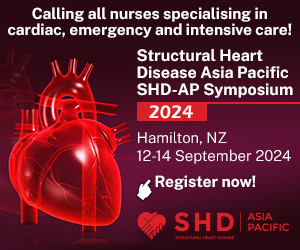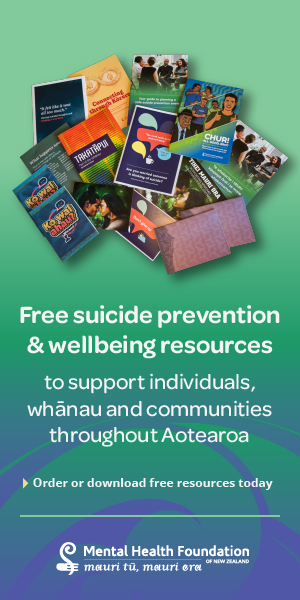Margaret Hand, 56, doesn’t sugar coat her explanation of why she studied nursing.
“To get out of Dargaville, really. There weren’t many jobs and if you stayed there you’d just get pregnant.”
But nearly four decades later, she has a slow-burning plan to call the Te Tai Tokorau township home again.
Margaret Hand said her whānau became disconnected with their cultural connections through the upheavals of displacement and poverty.

Every Monday the nurse practitioner travels south-west from her home in Whangārei, to Dargaville to work for iwi health provider Te Ha Oranga.
She and her husband are in the process of building a house in the district, where they have bought some land.
At 13, Hand moved to Dargaville from Auckland with her two brothers, and cousins when her grandfather retired from his job with the railways.
The family didn’t own a car and lived at Omarari Beach, about 40km from the township so she rode a horse part of the way to school.
Hand was born in Auckland – the second of three children and only daughter – but began her life in Timaru, her Pākeha father’s home town.
Things changed abruptly when her mother died after falling from a moving car when Hand was just two years old.
Her nan – who had probably never been on a plane before” – arrived from Auckland to take the three children into her care, despite already having two of her own children and three grand-children to care for.
Hand says her childhood was marked by poverty, illness and the early death of three family members including her mother, by the time she was 18.
Her uncle, a promising rugby player, died from a brain haemorrhage at age 17, after suffering concussion in a game.
In her first year of nursing studies, Hand’s younger brother died at 16. He had battled with an enlarged heart since birth, and had spent countless hours in Greenlane Hospital, Hand said.

She remembers feeding his leftover hospital food to the seagulls on the way home.
Her grandparent’s youngest child was severely disabled and suffered a brain injury in a hit and run accident and required full-time care.
Hand’s maternal grandparents had moved to Auckland from Dargaville after the war, for her grandfather’s job.
Despite her grandparents being fluent in te reo Maori, Hand rarely heard them speak the language growing up.
” … all of that generation had been stopped from speaking Māori.
“It affected our whole generation, my grandparents only spoke it when they went back to the marae.”
Poverty marked her whanau apart from others in the neighbourhood, and was the dominant factor in Hand’s sense of identity, she says.

“It was more like the haves and the have nots, we were pretty poor, and Newmarket is quite an affluent area, so there was a good education there but some days you didn’t have lunch, or there were days when you’d go without dinner.”
In her younger years, Hand and her brothers moved between their aunt and uncle’s home in Wellington, and the grandparents in Auckland.
Nursing – a way out of poverty and boredom
After finishing school, Hand says there were many offers of work in factories in Auckland, where cousins and friends were making good money.
“But I thought I just don’t see myself working in a factory, I was a bit of a snob I guess.”
Hand signed up to study nursing and began the bachelor’s degree at NorthTech in Whangārei in 1986. She was one of six Māori students in the course.
“It was just great, we had a fantastic time, probably drank too much, and I enjoyed the three years of training because I had really amazing friends.”

After graduating, Hand worked at Whangārei Hospital, starting in medical and surgical wards before moving to the Intensive Care Unit (ICU). She took up a public health nursing role in Dargaville for a couple of years, before returning to ICU.
Tragedy struck in her mid-30s when her ex-partner and the father of their children died in the ICU ward Hand was working in.
The couple had separated two years earlier but remained close.
“He had a bowel transplant, and he got pneumonia, and then septicemia and went into cardiac arrest.”
Hand was with him in the ambulance and when he passed away in the ward.
Time on the thin blue line
Left to raise their children alone, Hand continued with a plan to switch careers and enrolled for training in the police force.

She worked as a police officer for the next four years while keeping up her nursing registration with casual hospital and ambulance shifts.
Despite the radical career change, Hand says both roles were about serving the community and making a difference to people’s lives.
Hand said she was looking for a new challenge at that stage of her life.
But as she progressed in the police, the lack of flexibility while juggling “a house, a mortgage and kids” became unworkable and she returned to nursing.
Hand took up a role with an iwi provider, in cardiac rehabilitation for two years, while continuing with casual hospital work.
In 2008 she took up a role at Maori/iwi nurse-led health clinic, Hau Awhiowhio ō Otangarei Trust, where she works today.
What has changed, what has stayed the same?
Hand said it was disappointing more had not been achieved to reduce poverty since she was a child.
“It’s sad to say, but I don’t think, with the families that I work with, it’s any different to when I was growing up.”
She welcomed the health reforms, but said there was still no concrete plan to address inequities.
“Rurally we’re suffering because they haven’t thought about the life-long planning of the workforce, not just for nurses but for all health providers.
“I can boldly say that with the low representation of Maori healthcare workers in Northland, a lot of our people have died early as a result.
“I’ve got aunties and uncles that have died in their 40s, that should be living in their 70s now.”

Hand said she hoped a cultural resurgence among Maori would bring equal rights for health services and outcomes, following the example of Dame Whina Cooper in the area of land rights.
As an NZNO Toputanga Tupuhi Kaitiaki 0 Aotearoa board director. Hand said she would be advocating for the Government to address child poverty and health inequities.
“As a board, if we can hold people accountable, we’re a force to be reckoned with. We need to rattle the cages to get some traction.”
She has seen the impact holistic nursing can make on individuals, and their whole whānau, when they are treated with respect and dignity.



